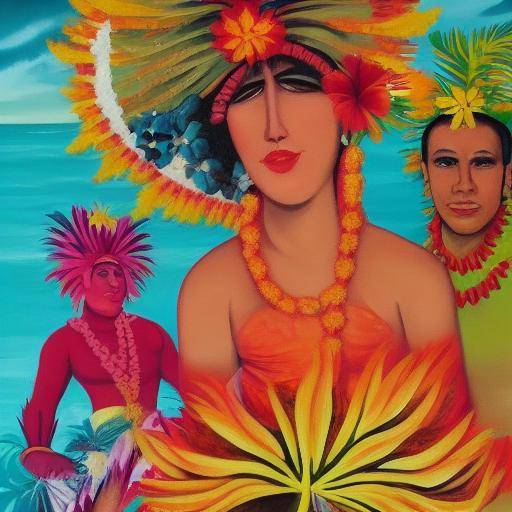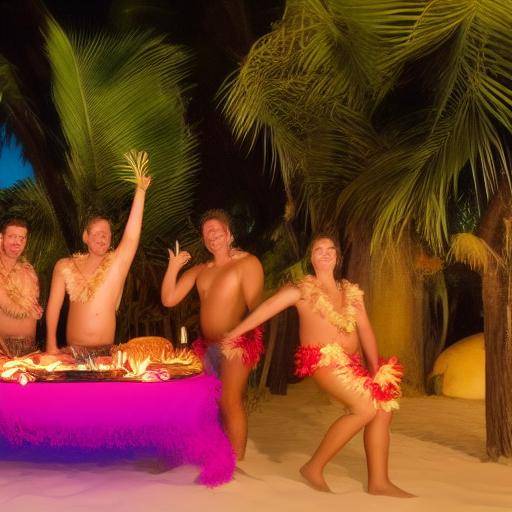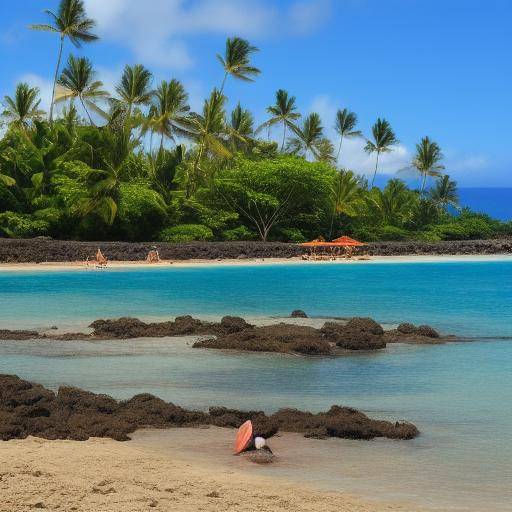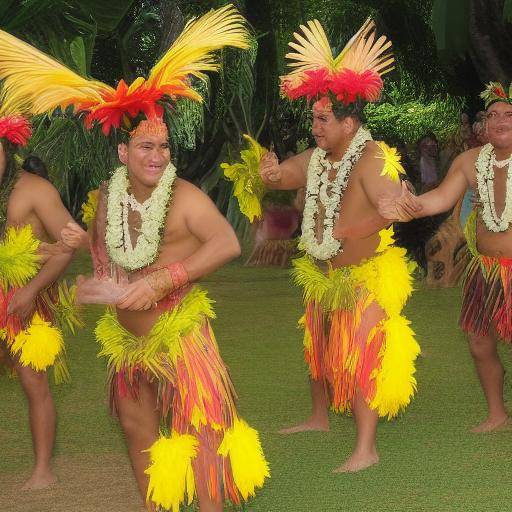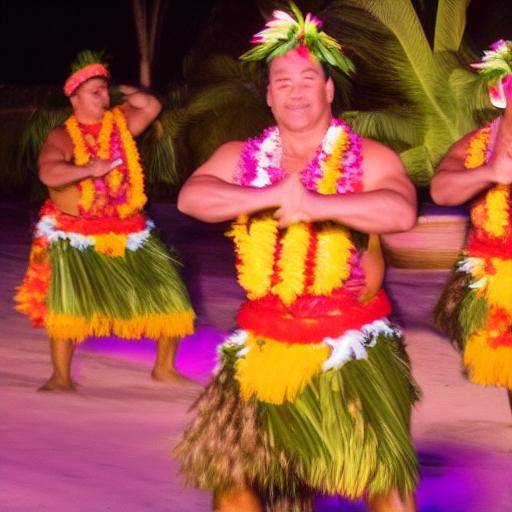
Introduction
Welcome to the wonderful Hawaiian culture! The luau, known for its exotic dances and delicious Polynesian cuisine, is a traditional festive event that represents the rich heritage of Hawaii. In this article, we will explore the traditions, dances and culinary delicacy of Hawaiian luau, plunging into its historical roots and analyzing its relevance today. We will discover the magic of this cultural ritual that has enchanted visitors from all over the world and has nourished the spirit of the people of Hawaii for centuries.
History and Background
The roots of the luau go back to the ancient Hawaiian society, where it was a celebration dedicated to honoring the gods, sharing rich food and expressing gratitude for the abundance of the earth. Throughout the centuries, the luau has evolved, merging elements of Polynesian and Western culture, but maintaining its essence as a gathering of community and celebration.
The origins of the luau are intertwined with the history of Hawaii and its original inhabitants, the Polynesians, who brought with them their own traditions and rituals. Over time, Luau has adopted elements of other cultures that have influenced Hawaii, including practices of Chinese, Japanese, Filipino and Portuguese immigrants.
During the colonial period, Luau became a tool of cultural resistance to preserve Hawaiian traditions in the midst of Western influence. Hula dance, music with traditional instruments such as ukulele and the peculiar gastronomy became fundamental pillars of this festival.
Detailed Analysis
Hawaiian luau is not only a show of charming entertainment, but has also played a crucial role in the preservation and dissemination of Hawaiian culture. Its tourist attraction and its link to cultural identity have contributed significantly to the region's economy, becoming a source of livelihood for many local communities.
At present, however, the marketing of luau has posed challenges to the authenticity of experience and the preservation of its original meaning. The debates on tourist traction in the face of cultural authenticity have raised questions about the future of luau and its role in contemporary Hawaiian society.
Full review
Luau, Hawaii and Hawaiian culture are intertwined intrinsically, sharing a common legacy in their impetus to celebrate life, nature and connection with the cosmos. Hula dance, traditional songs and festivities are living expressions of a worldview rooted in spirituality and respect for the land and its resources.
Incidences such as the arrival of tourists and the spread of globalization have raised a new dimension to luau, opening a dialogue on how to preserve and transmit old traditions to future generations. This challenge has motivated community leaders and artists to find innovative ways to revitalize luau, preserving its historical essence and adapting to contemporary dynamics.
Comparative analysis
Luau, Hawaii and Hawaiian culture share a close relationship that reflects the unique spirit of this Polynesian paradise. While Luau embodies celebration and communion, Hawaii offers the perfect setting for this holiday, with its natural beauty and rich cultural heritage. Both symbolize the art of living in harmony with nature and honor tradition with joy and reverence.
Practical Tips and Accessible Recommendations
If you are planning to attend a luau, here are some helpful tips to make the most of this unique experience:
- Clown: Opt for comfortable and fresh outfits, such as floral dresses or loose shirts. Don't forget to wear a pair or a handkerchief, as they are also part of the traditional dress.
- Solar protector: Since many luaus are outdoors, it is essential to protect themselves from the sun with a wide spectrum sunscreen.
Conclusions
Hawaiian Luau is more than just a festive event; it is a door to the soul of Hawaii and its rich Polynesian culture. Through dance, music and gastronomy, the luau offers a window to the joyful and hospitable spirit of the islands. It is an experience that nourishes the soul, unites people and preserves the unique heritage of Hawaii over time.
Frequently asked questions
What is the origin of Hawaiian luau?
Luau has its roots in ancient Hawaiian society, where it was a festival dedicated to honoring the gods, sharing food and expressing gratitude for the abundance of the earth.
What is the importance of Luau in Hawaiian culture?
Luau is a symbol of celebration, hospitality and community in Hawaiian culture. Gather people to share food, music, dance and traditions, representing a deep connection with the earth and the Polynesian spirituality.
How is the food prepared for a Hawaiian luau?
Food for a Hawaiian luau is prepared with fresh and local ingredients, such as roasted pig, fish, tropical fruits and vegetables. Ground cooking, known as "imu", is a traditional technique used to prepare roasted pork, giving it a smoky and juicy taste.
What is expected of a Hawaiian luau show?
Hawaiian Luau shows often include hula dances, live music, theatrical performances and traditional crafts. Dancers, dressed in colorful costumes, narrate stories through dance, while musicians play traditional instruments such as ukulele and seashells.
What is the impact of tourism on Hawaiian luaus?
Tourism has had a major impact on Hawaiian luaus, providing a source of income and employment for the local community. However, it has also raised challenges in terms of cultural authenticity and the preservation of original traditions.
What are the highlights of hula dance in a Hawaiian luau?
Hula dance is a central point of celebration, expressing stories and emotions through elegant and fluid movements. Dancers usually wear grass skirts or flowers and shell ornaments, while dancers perform ceremonial steps with grace and energy.
Concluding, the Hawaiian luau is not only a festive event, but a window to the rich culture, dances and Polynesian cuisine. This celebration transcends the mere entertainment to connect people with the welcoming spirit and rich heritage of Hawaii.

